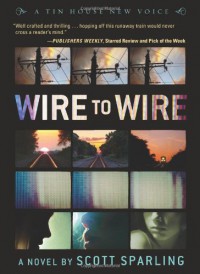Sons of Noah and Other Stories
 I got to meet Jack Cady at a Haystack writer's workshop in Cannon Beach, Oregon back in the late 80's. He was one of the most gracious, and down to earth people I have ever met. His short story, "By Reason of Darkness", the last story in this collection is still probably my favorite horror short story of all time. It had just come out in the fantastic 1988 horror anthology, Prime Evil, and I had just read it a few weeks earlier. When I heard that he was going to be a guest speaker at the workshop I was thrilled. When I told him that "By Reason of Darkness" was my favorite horror story of all time, he just smiled and said something like, "That's the highest compliment any writer can get." I didn't understand what he meant at the time but now, all these decades later I do. Critics and editors and agents are all well and good, but a true writer writes for the reader and if the reader is thrilled, the writer has done his job.
I got to meet Jack Cady at a Haystack writer's workshop in Cannon Beach, Oregon back in the late 80's. He was one of the most gracious, and down to earth people I have ever met. His short story, "By Reason of Darkness", the last story in this collection is still probably my favorite horror short story of all time. It had just come out in the fantastic 1988 horror anthology, Prime Evil, and I had just read it a few weeks earlier. When I heard that he was going to be a guest speaker at the workshop I was thrilled. When I told him that "By Reason of Darkness" was my favorite horror story of all time, he just smiled and said something like, "That's the highest compliment any writer can get." I didn't understand what he meant at the time but now, all these decades later I do. Critics and editors and agents are all well and good, but a true writer writes for the reader and if the reader is thrilled, the writer has done his job.I can't remember much about what he said that evening but he did end the night by reading The Velveteen Rabbit out loud to us.
 Scott Sparling does an interesting thing in Wire To Wire. He explores the inner lives of social cast-offs, addicts and criminals. Sure, this is nothing new. It's called crime fiction. But Sparling tacks into his character's head at an oblique angle, not glorifying them, not deconstructing them, but just letting them speak their truths. This book isn't built around "beats" or "arcs" but follows a straight line from page 1 to the end. Much like the trains that are the underlying trope of this book. Riding the rails is at once liberating and limiting. You become outlaw and prisoner.
Scott Sparling does an interesting thing in Wire To Wire. He explores the inner lives of social cast-offs, addicts and criminals. Sure, this is nothing new. It's called crime fiction. But Sparling tacks into his character's head at an oblique angle, not glorifying them, not deconstructing them, but just letting them speak their truths. This book isn't built around "beats" or "arcs" but follows a straight line from page 1 to the end. Much like the trains that are the underlying trope of this book. Riding the rails is at once liberating and limiting. You become outlaw and prisoner. On his website Scott mentions the influence of a master of dark lit noir, Jack Cady. I could see Cady's influences in places. I met Cady a couple of times and almost took his classes but didn't. Just meeting the man made an impression.I can't imagine what his classes would have been like. I see parallels between Sparling and Cady. Their populist slant, the same field of play; outsiders looking in but not wanting in.I'll stop the comparison there because that is where is stops.
Wire To Wire made me think. Plot points came and went. Characters were here and then there. Sparling plays with time, jumping back and forth. On the one hand there is the video editor plodding through junk projects and on the other hand there is a whole story unraveling before us.
If I had to sum this book up in one word, it would be "integrity". Some writers have it and some don't. Sparling does. He rides the rail to the end, come what may.
Recommended.



